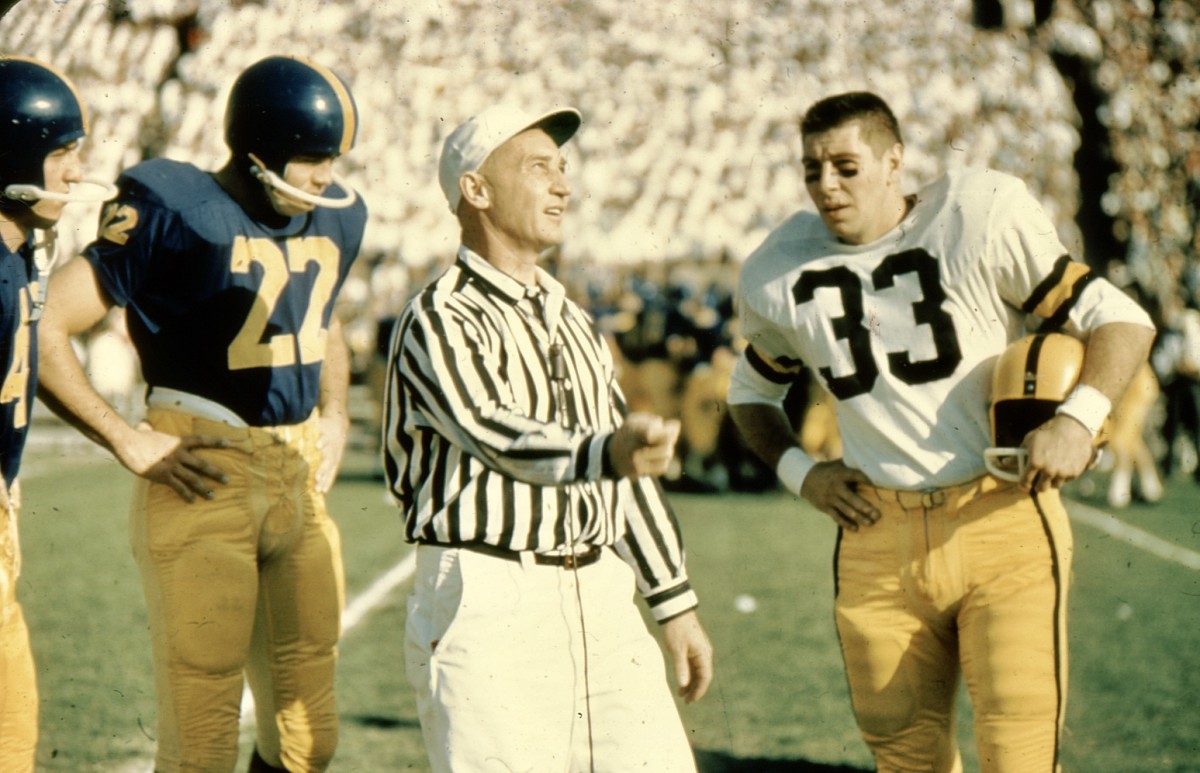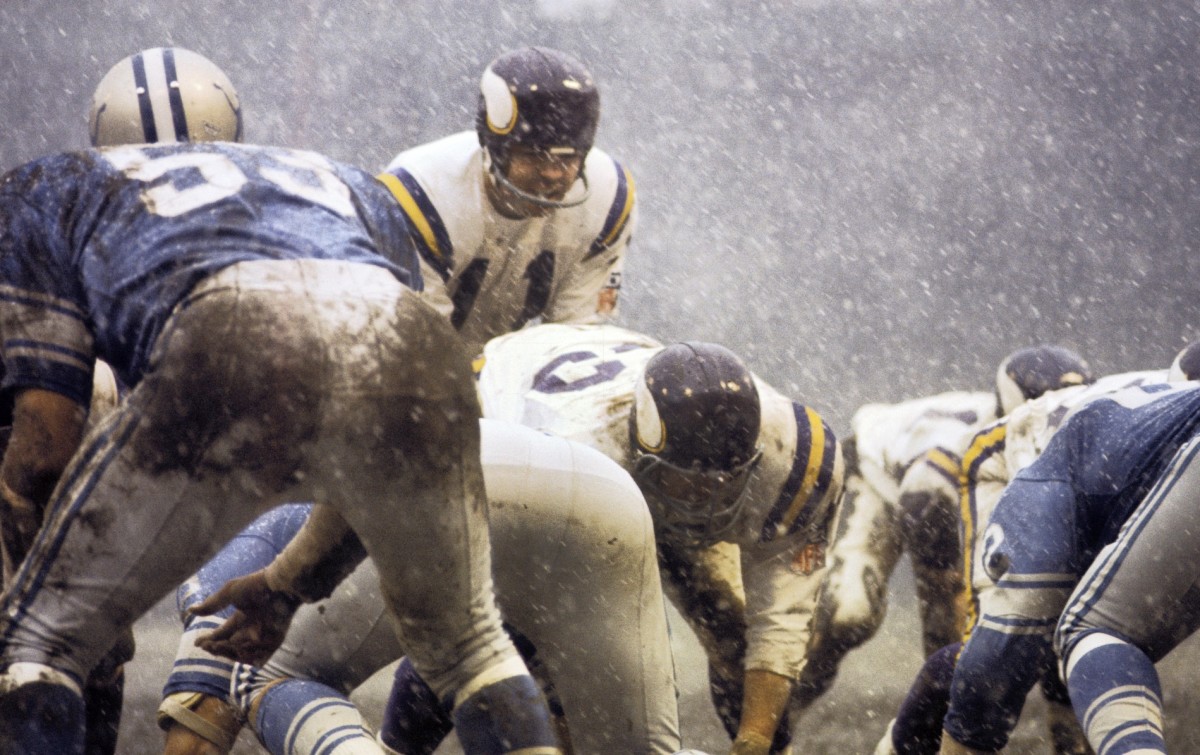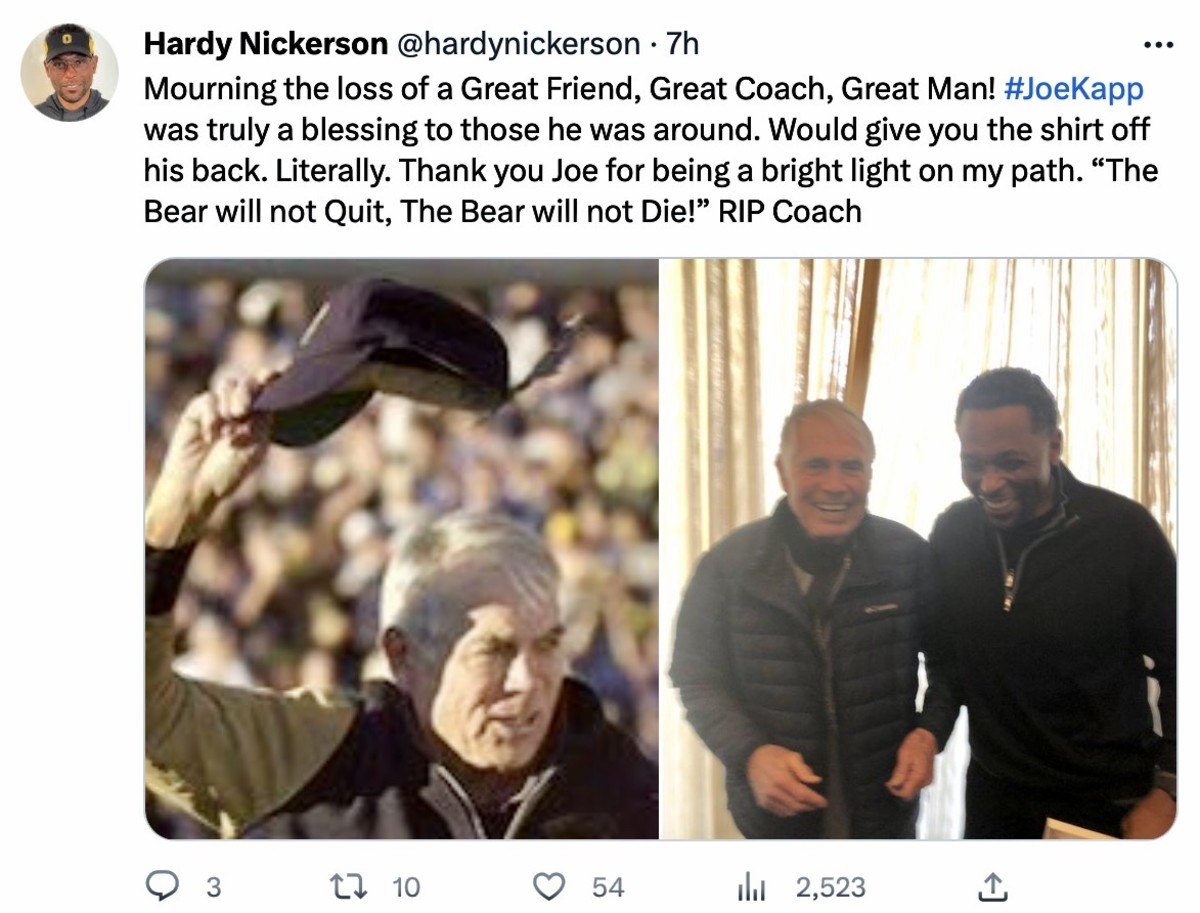Cal Legend Joe Kapp Dies at 85 After Long Battle with Dementia
Joe Kapp, who quarterbacked Cal to its most recent Rose Bowl appearance and wore his passion for his alma mater on his sleeve, died Monday after a 15-year battle with dementia, his family announced.
He was 85.
“We are sad because we miss him but it is more important to celebrate a life well lived,” his family wrote.
It was a full life. Kapp led the Bears to the Rose Bowl following the 1958 football season and subsequently played in both the Super Bowl and the Canadian Grey Cup — the only player to quarterback a team to all three of those events.

In 1982, in his first of five years as the Bears’ head coach, Cal pulled off the five-lateral kickoff return in the final seconds of the Big Game that became known as The Play and handed John Elway and Stanford a 25-20 defeat.
Afterward, Kapp quipped, “The Bear does not quit, the Bear will not die,” a slogan that accompanies a plaque dedicated to Kapp near the stairs at Memorial Stadium that lead to the team’s locker room.
Kapp came to Cal on a basketball scholarship because football coach Pappy Waldorf did not have another one to offer. And while Kapp did play briefly for coach Pete Newell’s basketball team — hitting a game-winning shot against Stanford in 1957 — he was at Cal to play football.
“He is the only player I ever coached who could start at all 22 positions,” John Ralston, an assistant at Cal who went on to coach Stanford, once said of Kapp.
Big and physical, Kapp was dubbed “the toughest Chicano” in a Sports Illustrated cover story. It was his leadership and will to win as much as his passing skill to powered Cal to a 7-4 record in 1958 and a spot in the Rose Bowl, where the Bears lost 38-12 to Iowa.
The Bears haven’t made it back since to the traditional Jan. 1 game at Pasadena, and Kapp vowed never to take another sip of tequila until Cal won the Rose Bowl. No one quite believed he would stay true that promise, but it demonstrated the way he felt about his alma mater.
Born in Santa Fe, New Mexico in 1938, Kapp lived his young life in San Fernando Valley and Salinas before his mother moved the family back to Southern California. His exploits at Hart High School in Newhall led him to becoming the first member of his family to attend college.

He played the first eight seasons of his professional career in Canada before signing with the Minnesota Vikings in 1967. Two years later, he directed the Vikings to a berth in Super Bowl III, where they lost 23-7 to the Kansas With Chiefs.
“Joe Kapp was the leader the fans thought he was: tough and fearless, focused on the team, believing in the forty for sixty mantra that he made famous,” former Vikings defensive lineman Jim Marshall said.
Kapp was voted the team’s most valuable player, but declined the award, saying there were 40 MVPs on the roster.
Although he did not deliver a classically beautiful pass, Kapp tied an NFL record by throwing seven touchdowns in a game against the Baltimore Colts.
During and after his playing days, Kapp dabbled in acting, making 27 appearances in films or TV shows, according to IMDB.com. His most famous role was in the 1974 movie, “The Longest Yard,” featuring Burt Reynolds in the lead.

Cal hired him to take over the football program in 1982, despite the fact that Kapp had no formal coaching experience. He assembled a strong staff and the Bears went 7-4 in his debut season, including the Big Game triumph.
Kapp was fired at the end of the 1986 season but not before the Bears again delivered a stunning upset victory in the Big Game, knocking off a Stanford team favored by 21 points. Cal’s players carried their coach off the field afterward.
Kapp’s final coaching ledger was 20-34-1, but his place in Cal lore is secure.
His family cited his work with Cesar Chavez in support of farmworker rights and his participation in fundraising for organizations supporting the Latinx community.
Joe Kapp Field at El Sausal Middle School in Salinas is named in his honor, and Kapp been inducted into the College Football Hall of Fame, the Canadian Football Hall of Fame, the Bay Area Sports Hall of Fame and the Cal Athletics Hall of Fame.
Kapp’s long battle with Alzheimer’s left him diminished but his spirit often emerged, even in recent years, according to his family.
“In Joe’s world everyone was family, and every day was a fiesta,” son J.J. Kapp wrote. “To the very end he was entertaining his care givers with rousing daily versions of “You Are My Sunshine.”
The family said his brain will be sent to UCSF. Kapp said in a 2016 Bay Area News Group story that he struggled with memory loss and worried that he suffered from chronic traumatic encephalopathy (CTE), a degenerative brain disease that has afflicted many former football players.
Kapp is survived by his wife Jennifer, daughters Emiliana and Gabriela, sons J.J. and Will and six grandchildren.
Cover photo of Joe Kapp courtesy of Cal Athletics
Follow Jeff Faraudo of Cal Sports Report on Twitter: @jefffaraudo
